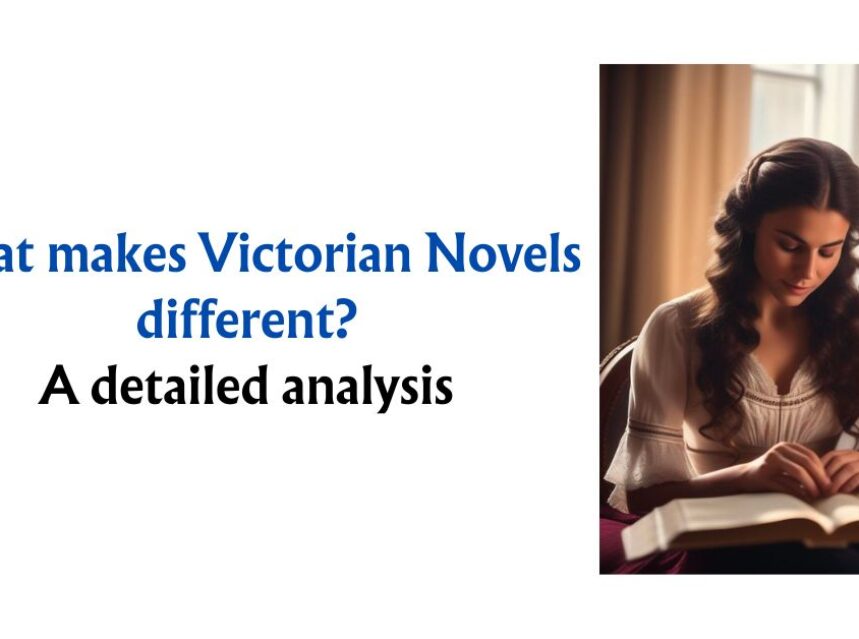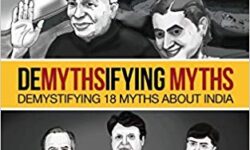
What makes Victorian English Novels different from other novels? A few points
First of all, let’s begin with the fundamentals. What is a Victorian Novel? Victorian novels, a prominent literary genre during the reign of Queen Victoria from 1837 to 1901, encapsulate the social, economic, and cultural dynamics of the Victorian era. These novels, characterized by their extensive length, intricate plots, and keen observation of societal nuances, reflect the complex tapestry of 19th-century England. Authors like Charles Dickens, Charlotte Brontë, and George Eliot crafted narratives that explored the effects of industrialization, class struggles, and the evolving role of women. Dickens, known for works like “Bleak House” and “Great Expectations,” exposed the harsh realities of urban life and the plight of the poor. Brontë’s “Jane Eyre” challenged societal norms and presented a strong, independent female protagonist. Eliot’s “Middlemarch” delved into the intricacies of provincial life, offering profound reflections on human nature. Victorian novels, with their blend of social commentary, rich characterizations, and intricate storytelling, continue to captivate readers, providing a window into the complexities and contradictions of a bygone era.
What are the main features of Victorian Novels?
Social Realism: These novels are characterized by a commitment to social realism, vividly portraying the societal issues and challenges of the Victorian era. Authors like Charles Dickens and Elizabeth Gaskell were ardent advocates for social reform, using their novels as a medium to shed light on the harsh realities of poverty, class disparities, and the impact of industrialization on society.
Complex Plots and Narrative Techniques: Victorian novelists were adept at crafting intricate and multi-layered plots. Their narratives often interwoven various characters and subplots, creating expansive and immersive storytelling experiences. The novels frequently employed intricate narrative techniques, such as unreliable narrators and intricate structures, adding layers of complexity to the storytelling.
Moral Values and Social Critique: A prominent feature of Victorian novels is their moral undertone. Many authors used their works to convey moral messages and critique societal norms. These novels served not only as entertainment but also as vehicles for commentary on the moral fabric of Victorian society.
Character Development and Psychological Insight: The authors paid meticulous attention to character development, creating nuanced and multi-dimensional characters. The exploration of characters’ inner lives and psychological states became a hallmark of Victorian fiction. This focus on psychological insight allowed readers to connect more deeply with the characters and their struggles.
Themes of Love and Romance: While love and romance were recurring themes, they were often presented in the context of societal expectations and moral dilemmas. Victorian novels explored the complexities of relationships, often challenging traditional notions of love and marriage.
Prominent Examples:
Charles Dickens – “Bleak House” (1853): Dickens’ masterful critique of the British judiciary system and exposure of social inequalities remains a cornerstone of Victorian literature.
Charlotte Brontë – “Jane Eyre” (1847): Brontë’s classic coming-of-age story challenges societal norms and provides a nuanced exploration of love, morality, and independence.
George Eliot – “Middlemarch” (1871-1872): Eliot’s magnum opus intricately weaves together the lives of various characters in a provincial town, offering a profound exploration of human nature.
Thomas Hardy – “Tess of the d’Urbervilles” (1891): Hardy’s tragic novel scrutinizes the impact of societal expectations and morality on the life of its protagonist, Tess.
William Makepeace Thackeray – “Vanity Fair” (1847-1848): A satirical gem, “Vanity Fair” exposes the hypocrisy and moral ambiguity of the upper classes during the early 19th century.
Want more? Read this list of Must Read Victorian Novels.
In conclusion, Victorian novels, with their distinctive nature, content, and philosophical underpinnings, offer readers a literary journey that transcends mere entertainment. While it is true that delving into the intricacies of these novels might be arduous at times, the rewards are profound, bringing both pleasure and aesthetic satisfaction to readers.
The enduring appeal of Victorian novels lies in their ability to transport readers to a bygone era, immersing them in the complexities of 19th-century society. Through the lens of social realism, these novels serve as time capsules, vividly capturing the struggles, triumphs, and moral quandaries of the Victorian age. The rich tapestry of characters, intricately woven plots, and psychological depth contribute to an immersive reading experience, allowing readers to connect with the characters on a profound level.
Moreover, Victorian novels offer more than just narrative escapades; they serve as mirrors reflecting the societal values and challenges of their time. The moral undertones, social critiques, and exploration of human psychology contribute to a multi-faceted reading experience that goes beyond mere storytelling. These novels become vehicles for introspection, prompting readers to ponder timeless questions about morality, love, and the human condition.
While the language and style of Victorian novels may pose challenges, the effort invested in navigating their intricacies is richly rewarded. The aesthetic pleasure derived from the eloquence of prose, the depth of characterization, and the intellectual stimulation of engaging with complex themes contribute to a reading experience that transcends the transient pleasures of more straightforward narratives.
In essence, Victorian novels invite readers to a literary odyssey that not only entertains but also enriches the mind and soul. The arduous journey through their pages is a pilgrimage into the depths of human experience, a journey that, despite its challenges, promises the enduring joy of discovering profound truths about the past and, by extension, the present. Embracing the unique qualities of Victorian novels is an invitation to savour the pleasures of literature in its most intricate and thought-provoking form.
By Parakashtha for The Book Blog
